The New Years’ edition of Vanitha, a self-proclaimed ‘women’s magazine’ read in Malayalam, owned and circulated by the Malayala Manorama group ran a cover story with the picture of actor Dileep and his family on the cover. A prominent name in the Malayalam film industry, Dileep is accused and currently tried as the mastermind behind the ongoing case of abduction and sexual assault of an actor. The glossy cover of the magazine captures this man in full family glory, protectively cladding his wife and two daughters, his face looming over them as well as (comically) placed over the word Vanitha (which means woman) splitting it into two. The issue comes days after director Balachandra Kumar, a former friend of Dileep has leveled serious allegations incriminating him.
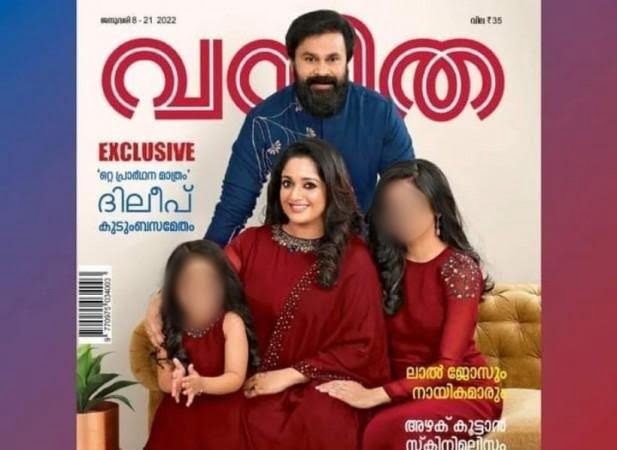
A prominent name in the Malayalam film industry, Dileep is accused and currently tried as the mastermind behind the ongoing case of abduction and sexual assault of an actor. The glossy cover of the magazine captures this man in full family glory, protectively cladding his wife and two daughters, his face looming over them as well as (comically) placed over the word Vanitha (which means woman) splitting it into two. The issue comes days after director Balachandra Kumar, a former friend of Dileep has leveled serious allegations incriminating him.
The survivor who has now revealed her identity through an Instagram post had reported the sexual assault and attack on her schemed by Dileep and his friends in 2017. Several celebrities, directors, film crew, and staff came in support of the actor, while a considerable amount of them doubted her, even worse, came out in solidarity with Dileep.
The chargesheet filed against Dileep arraign him of paying ‘Pulsar’ Suni (main accused) to abduct and assault the actor, record visuals of the crime, and hand them over to him. In her statement, the survivor writes, “For 5 years now, my name and my identity have been suppressed under the weight of the assault inflicted on me. Though I am not the one who has committed the crime, there have been many attempts to humiliate, silence, and isolate me”.
Also read: You Do Not Have To Forgive The Person Who Abused You
In January 2022, fresh revelations made by Balachandra Kumar alleges that Dileep was in possession of the video of the assault even before the visuals were produced in court, and also that the actor watched it with a celebrity friend. Even more disturbing are the details of this alleged “group watching”, where the celebrity friend of Dileep is said to have enhanced the audio of the clips with the help of a famous studio house in Kochi. The director reveals that the actor was planning to murder a police officer probing the case and is now currently scared for his own safety.
Vanitha, although very flimsy on their position as a ‘women-centric’ magazine, is so much a household name that it is the defacto railway station read, common companion item on tea tables, waiting rooms, and chai stops. Vanitha enjoys a large distribution and readership among Malayalis, often claiming to produce stories uplifting and empowering women. Vanithakalude suhruthum, vazhikaatiyum (A guide and friend to women) is their most common tagline. They also remain irresponsible, and the least concerned, about how their publications influence the shifting attitudes their reading populace form and opinion about women. The face of the rape accused star on their cover page is only one instance of such irresponsibility. These instances are not rare. There is a growing space in media and newspapers for perpetrators like Dileep to ‘clear their name’, ‘appear innocent until proven otherwise’ while being completely apathetic to survivors and victims.
A report published by onmanorama (the digital vertical of the Malayala Manorama group that Vanitha also belongs to) also attempts to show Dileep in a pitiful light by using a photo of the actor that might largely elicit sympathy from the readership.
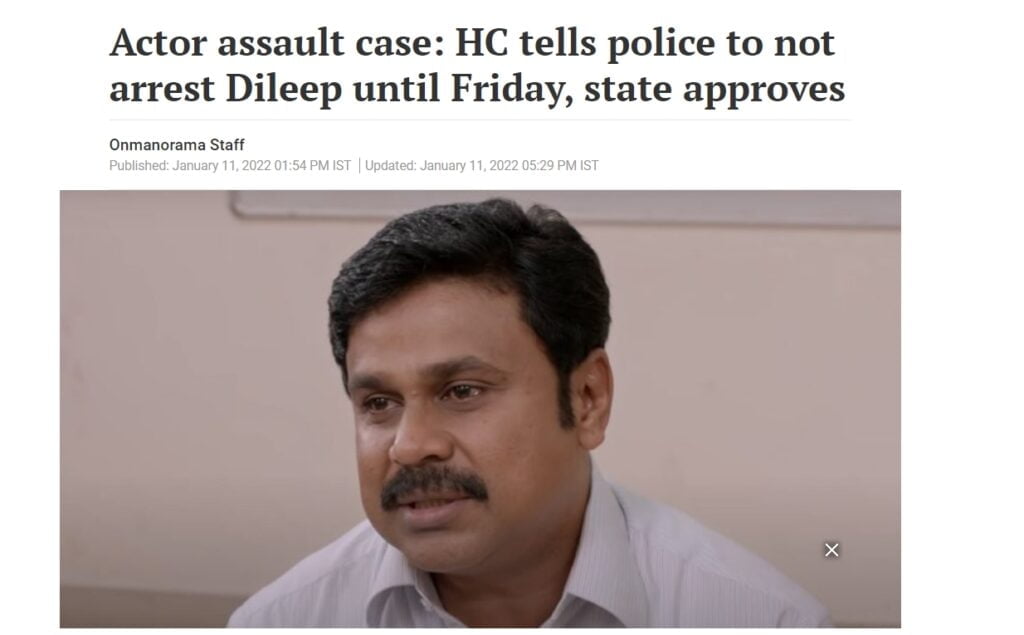
The ‘exclusive’ story runs with the headline “My war is for the truth to win”, spelled in large font over a family picture of Dileep, his overgrown beard symbolic of his prison time, his face slightly sadder than that of his family. A red banner runs on the top highlighting a quote by the actor, “I hope I live until the truth comes out”, insinuating that the actor is immensely distressed and his mental health is alarmingly slipping. The writer of the interview, Vijeesh Gopinath introduces Dileep as the brave captain of a ship, convinced to protect the people who stood by him amidst the “storm” of new accusations.
In the past few years, despite the rise in feminist news mediums, feminist coverage (or fair coverage, in other words) remains absent across media platforms. The stories of victimization of women are sensationalized, even overturned, to a point that the survivor undergoes a large media trial, harassment, and torture. In Kerala, with the many Vanitha magazines that would soon pop up in local stores and waiting room book stands, the story of the survivor will be again altered and twisted by male power. The news would buzz with more and more screen time and cover story spaces given to assaulters, rapists, and abusers for the sake of ratings.
In 2017, Dileep gave an interview victim-blaming the survivor, telling her off for being friends with those who assaulted her, implying that her friendship with ‘bad’ people is why she was attacked. A few weeks ago, he was again on air promoting his new film, answering questions to a prying interviewer that he is “unable” to tell his truth because he is not permitted to. If you weigh the amount of screen time the actor received to not “tell” his truth following the accusations, and compare it with how much we heard or listened from her and her allies, Dileep always seems to have had the upper hand.
The underlying situation is simple to understand. We are always introduced to women by media through a male perspective. We are so used to the cacophony of unnecessary newsmen debating on trivial matters regarding women, we forget to question why these men are occupying our screens in the first place. When women are brought on screen by news channels, an unfair amount of their talking time is used to defend themselves from unfair criticism, or defend survivors and victims from the same.
In a recent panel discussion, Dhanya Rajendran, the editor-in-chief and founder of The News Minute had to openly express disappointment at having Saji Nanthiyattu as a fellow panelist. The film producer Saji Nanthiyattu had appeared on Asianet News before, commenting that “The woman (survivor) was harassed only for 2.5 hours, but Dileep has been harassed for 4 months and has suffered mental agony”. It would make no sense why a man who previously victim-blamed the survivor was present for this panel unless it could boost ratings. On-screen, we see the man yell at Dhanya, asking her “Who she thinks she is?”, threatening to leave, causing some 10 minutes of circus until the news anchor asks, “Do you retrieve your statement?”. Saji gives a quick “I retrieve my statement”, leaves the panel, and then only could Dhanya resume talking about the trial. It appears inconspicuous, but Dhanya Rajandran was robbed of her time to speak, a quick ten minutes, by a man who never learned to shut up.
The matter at hand here is the lack of space for women on news, designed for men by men – especially cisgender men. Panels are designed in such a way that an odd group of people is pitted against each other to spike TRP ratings. The TRP is a metric used in marketing and advertising that compares target viewer impressions with respect to the population size of the audience, or in other words, TRP is measured on the basis of what excites men, what is impressionable to them, what images hold the gaze of men longer. This comes from a long-standing tradition of men taking ownership of the TV remote and the living room, watching what they want to see, clicking out when it disinterests them. It is unlikely that a woman will be uninterrupted during her screen time because the space was never designed for her or for a diverse audience. The onus of defending themselves and other women, the labor of speaking uninterrupted, the responsibility of recasting women as subjects of their own story for a younger generation of girls watching, all seems to fall on the shoulders of women.
But, women fail other women too. The Vanitha interview gives a fair share of its whitewashing of the actor to his celebrity partner. The interviewer asks, “Will you share your truth one day?” to which Kavya Madhavan replies instead of her husband, “I ask him to write down everything he has endured, to write about each and every person so that he would be able to tell the truth one day”. Enablers are those who look the other way when victims accuse their friends and family of abuse. Enablers can be anyone. Women have and still do enable abusers and the reasons are many. Sometimes enablers can be found in courtrooms too. During the course of the case proceedings, the prosecution had alleged that Honey M Varghese, the woman judge of the special court had allegedly raised “derogatory remarks” against the prosecutor, was “biased and hostile” to the survivor, and yet was not removed. The survivor had also said that the judge was a “mute spectator” who did not interfere even when she was being harassed by Dileep’s counsel during cross-examination.
In 2017, the same year that Dileep was arrested, his film Ramaleela (directed by Arun Gopy) was released amidst calls to boycott the film. Many defended watching the film saying that the livelihood of those involved in the making of it need not suffer because the lead actor is currently disgraced. The audience lingers on the archaic question in literature, can an artist be separated from his creation? In the Vanitha interview, Dileep is convinced that an audience who loves him and “believes in him” will continue watching his films. He says, “I am most indebted to my audience regarding the film Ramaleela….The reason I am able to speak like this is because of how people received the film. If everybody boycotted it, I would have taken longer to make a comeback like this”. Dileep has appeared in nine films following the case. He openly claims that an audience ‘watching’ him is evidence that they believe him, and not her.
In the Vanitha interview, Dileep is convinced that an audience who loves him and “believes in him” will continue watching his films. He says, “I am most indebted to my audience regarding the film Ramaleela….The reason I am able to speak like this is because of how people received the film. If everybody boycotted it, I would have taken longer to make a comeback like this”. Dileep has appeared in nine films following the case. He openly claims that an audience ‘watching’ him is evidence that they believe him, and not her.
The cover page on Vanitha is an example of how men come together with other men to form locker room type spaces in the media, wielding power over the stories that the masses hear. But the story has begun many diverse conversations among readers, which itself is a welcome sign that the audience is no longer reading passively. When I bought the copy of Vanitha from my local store to write this piece, the shopkeeper made a face at me as if to mean, ‘Why would a young girl buy this?’. In her statement, the survivor repeats, “… I have had some who stepped forward to keep my voice alive. Now when I hear so many voices speak up for me I know that I am not alone in this fight for justice”.
The Instagram post was shared by actors who previously dismissed and refused to speak about the case five years ago, their solidarities disappearing after 24 hours, just like their Instagram stories.
Featured image source: TheNewsMinute
About the author(s)
Sharon is a staff writer for FII.
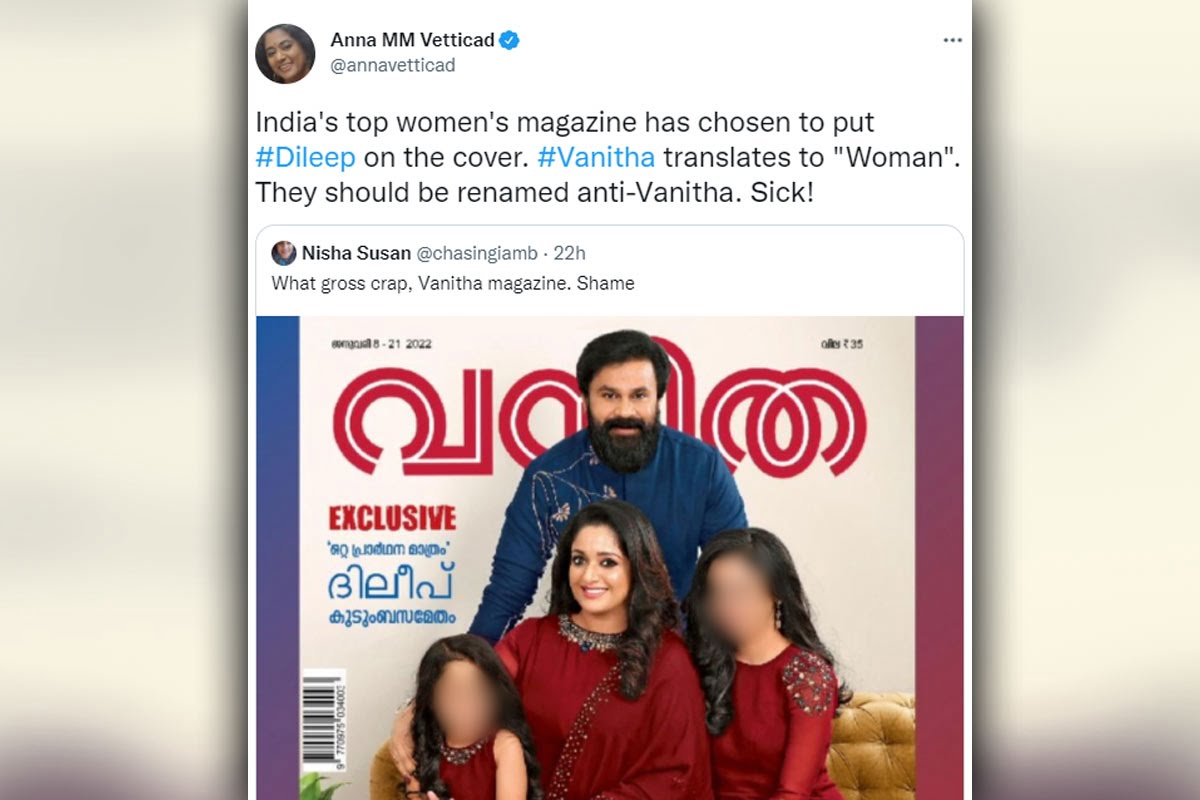
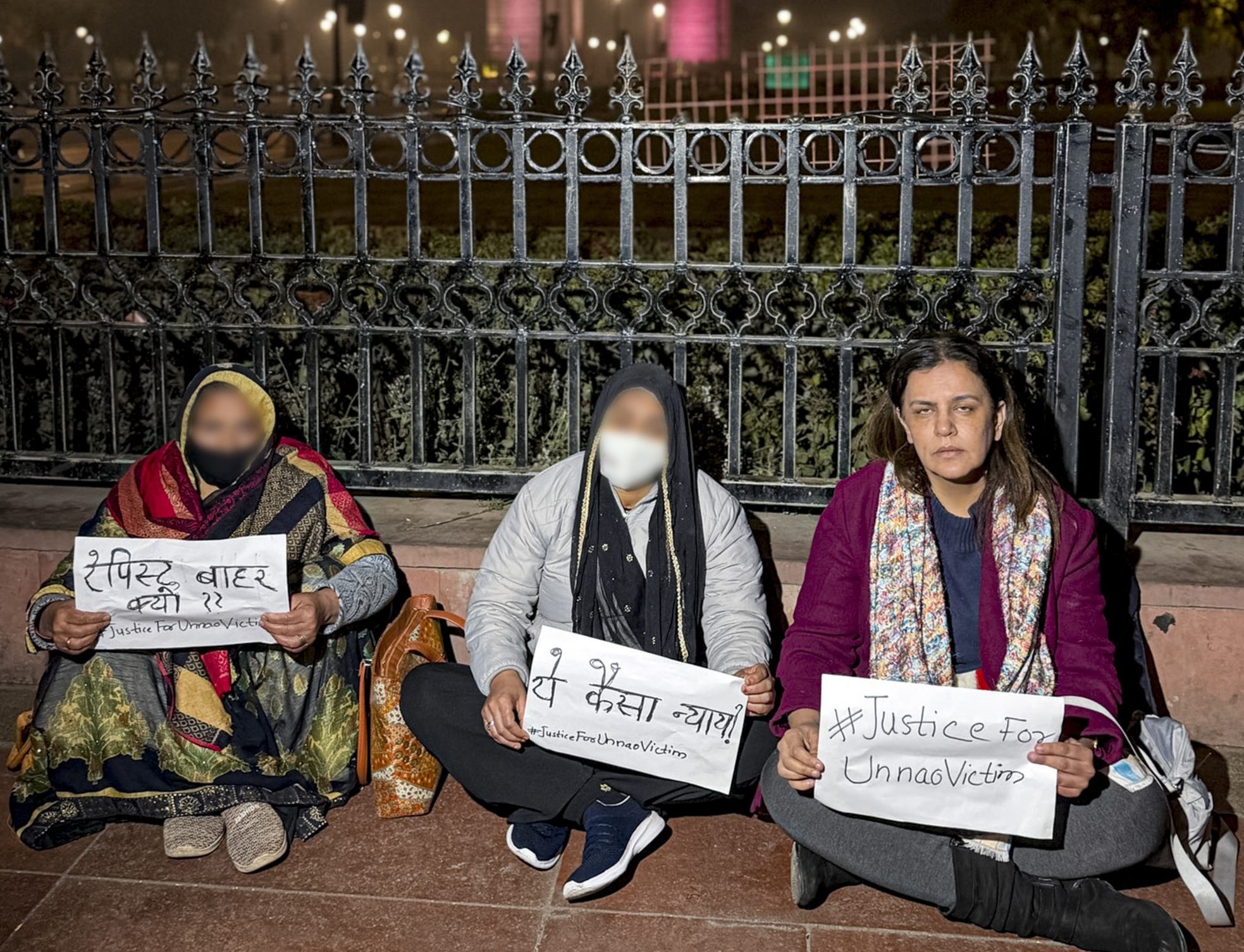
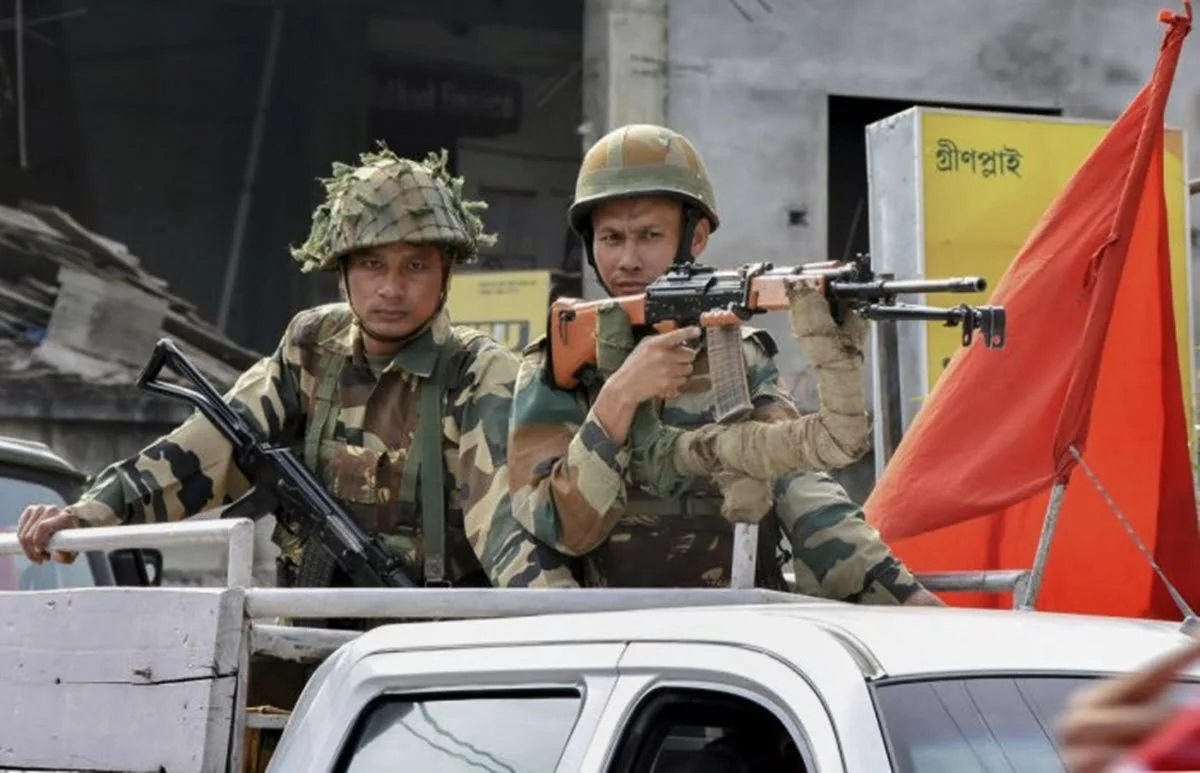
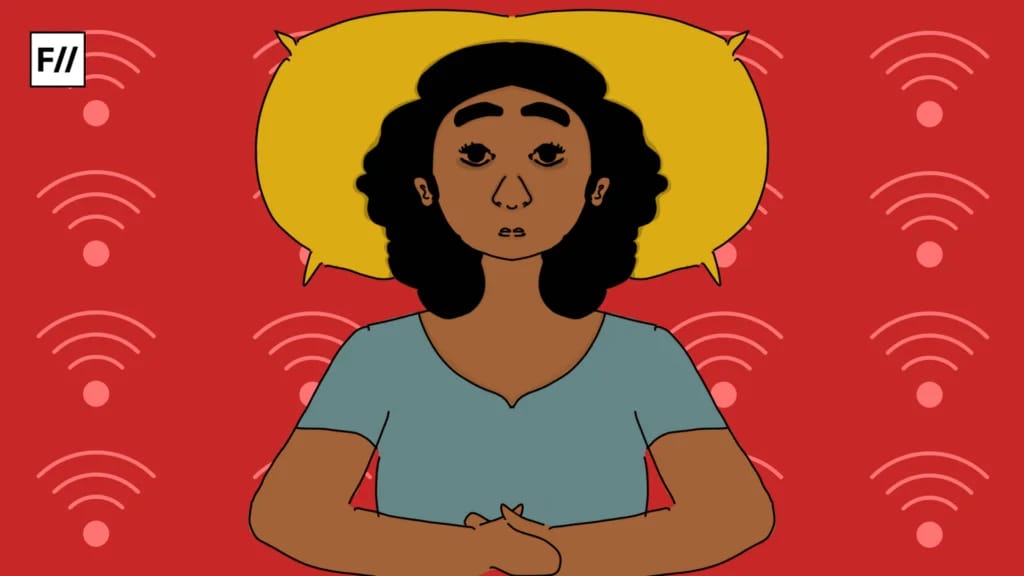

Incredibly well-written. It is so comforting to read an article that speaks up for women and speaks out against the injustices they have faced. You nailed every possible aspect here and your last line hits the mark perfectly in calling out those other actors.
“feminist coverage (or fair coverage, in other words) ” – Really? Not able to understand how is feminist coverage equal to fair coverage!!
Atleast start writing articles as fair coverage when u ask for it, when you are striving towards it. You will get more support then.
P.s I am a gender bender person who believes in equity! And I support the actress in this case, jus to be clear.
Maybe I am wrong in my previous comment. NOM. Happy to discuss and debate 😊